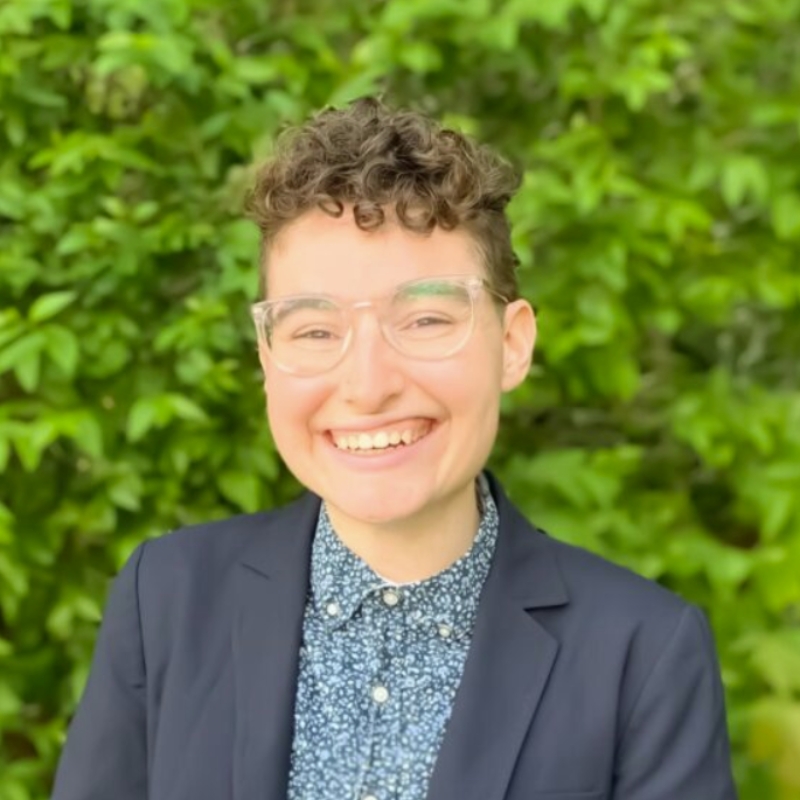Parshat Chukat has become my favorite Torah portion over the years. Not because it is easy, far from it. It’s messy, painful, and often interpreted as a moment of failure. But it’s mine. It’s ours. When I was struggling to learn Hebrew, wrestling with a language that didn’t come easily, and watching my classmates master it, I found myself in this parshah. Specifically, I found myself in Moses. I saw in him not only a leader, but someone who was struggling with something that others did easily, something others expected of him.
In Bamidbar Chapter 20, the people are thirsty again, and God tells Moses to bring forth water from a rock. But this time, the instruction is different. God says: “V’dabertem et haselah” — “Speak to the rock.” Not hit. Speak. The Hebrew verb “l’davar,” to speak, is deeply familiar. It’s the same word Moses used back in Shemot 4:10, when he said — “I am heavy of speech and heavy of tongue.” It’s his deepest struggle, the core of his resistance when God first called him to lead.
Now, decades later, God is again asking Moses to do the very thing that has always been hardest for him.
Moses has done hard things before, he’s spoken up, confronted Pharaoh, led with conviction. But in this moment, under pressure, with emotional heaviness, and the people’s complaints ringing in his ears, he doesn’t speak. Instead, he hits the rock. Twice.
Find more resources on Chukat.
Commentators often judge Moses harshly for this act, interpreting it as a failure of faith or obedience. But I see something different. I see a moment of profound humanity. Moses isn’t disobeying for the sake of rebellion. He’s reverting to a strategy, a crutch, that has helped him survive. He cannot find the words, so he uses what he can.
In a midrash I wrote a few years ago, reflecting on teaching Hebrew to my own students, I imagined what else might have been present at that rock:
Right as Moses was about to hit the rock, there was a young child who was also standing by the rock. As the child looked up, they noticed Moses trying to form words, but the words wouldn’t come out. The child saw Moses’s difficulty and for the first time, they felt seen. As a child with a speech impediment, they realized that the leader that they had admired for so long had the same challenges with words that they did. The water that came out of the rock was really the water of tears flowing from this young child’s eyes — tears of validation and joy, of feeling seen for the first time.
This, to me, is the Torah. The water is not only hydration, it is liberation. It is the release that comes from being seen, truly seen, in our whole, struggling, imperfect selves.
Find more commentaries on social justice, leadership, and philosophy.
Too often, we expect our leaders, our clergy, our heroes, even our biblical figures to be flawless. But Moses’ power as a role model is not that he always does it right, it’s that he keeps showing up, even with his imperfections. And it’s in those very imperfections that someone else, a child, a student, a seeker, might see themselves reflected.
To be someone’s role model is not to be perfect. It is to be visible. To let others see your flaws, your fears, your accommodations and to keep going. Moses didn’t speak to the rock, but in his struggle to do so, he may have spoken volumes to someone watching.
In this moment when so many are scared to show up in justice spaces out of fear of saying the wrong thing or hearing something that makes us uncomfortable, our role isn’t to step away, but to step in and be honest.
To invite someone to see themselves in us is an act of justice. It shifts power. It rewrites who gets to belong. When we reveal the places we fall short, the challenges we carry, the tools we use to cope, we create space for others to enter. We make Torah not just something we learn, but something we live.
Rabbi Jenna Shaw (they/them) is the associate director of Israel campaigns and education at T’ruah. They were ordained in 2023 from the Rabbinical School of Hebrew College in Newton, MA.

